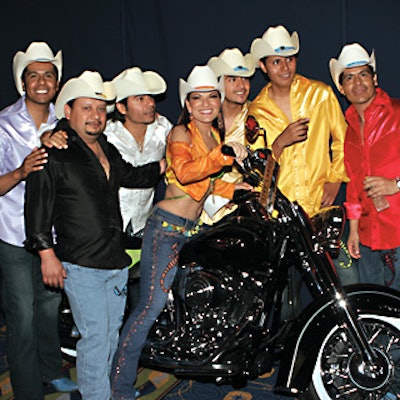
1. Understand the Sales Cycle
Before you can successfully work with sales reps, whether they’re part of your own organization or employed by an agency hired to close sponsorship deals for you, it helps to understand the sales cycle and each step involved in closing a sale. “Knowing this is key to providing the right training, compensating the right behaviors, keeping reps focused on the right priorities, and designing the right communication systems to move the sale from one step to the next,” says Steve McClatchy, president of Alleer Training and Consulting in Malvern, Pennsylvania. McClatchy, who has worked with companies like Ikea and Microsoft, breaks the sales cycle down into six steps: marketing, where the market becomes aware of your product or services; appointment booking, where reps will go out into the marketplace to find appointments with people who have an interest; questioning, where they’ll determine what the potential client’s needs are; presentation, where they’ll present the solutions to those needs; overcoming objections; and delivering solutions.
2. Define Your Involvement
Once the sales process is clearly delineated, determine where the reps’ participation will begin and end. “Do you want them to book appointments that you’ll then go on yourself? Or do you want to go with them? Do you want to go on the presentation? Knowing what your strategy and approach is, and the relationship you want to have with your rep, is going to be critical to your success,” McClatchy says. “Most relationships fail because they haven’t clearly defined exactly what the sales rep’s role is and is not.” That’s not a problem at More magazine, says Emily Prawda Weiss, the publication’s special events manager. “The ad sales managers bring in the sponsor, and either the promotion manager who worked on the proposal handles the sponsor or the event manager for the actual event works with the sponsor for the duration until the event.”
3. Be Specific About What’s for Sale
While you don’t want to stifle a salesperson’s creativity, it’s important to stress what exactly is and is not for sale with a sponsorship opportunity, says Melanie Young, president of M. Young Communications in New York. “I’ve learned you can never be too specific when you’re negotiating a sponsorship contract,” she says. “Many companies own many brands; a major soda company may also sell water and juice. I’ve seen situations where a sponsorship was not sold specifically enough, and it locked out a lot of potential sponsors.” In other words, a sponsor you sign might want to control more than you want it to. “We’re very clear in our sponsorships that it’s brand-category exclusive,” Young says. “It’s lost revenue if you’re too broad.”
4. Give Them Guidance
One of the first things sales reps have to do is decide who not to ask to sponsor an event, says T. Scott Gross, a Kerrville, Texas-based management training consultant and speaker, who fields frequent sponsorship requests because he also owns a sports-theme restaurant. “Go through a vetting process [with them] before they hit the streets or phones. Don’t burn a bridge by asking someone to sponsor something that’s inappropriate. Make good, solid matches.” For example, Gross says, “You wouldn’t ask Merrill Lynch to sponsor the X Games. The customers have little overlap, and the products are totally incongruent—conservative investments versus high-risk sports.” It’s best for all businesses involved to make sure sponsorship proposals are smart financial investments. So help arm sales reps with all of the information they’ll need to show why your event makes economic sense for the potential sponsor.
5. Compromise
Selling a sponsorship shouldn’t be reduced to a turf war, so think of salespeople as partners, not obstacles. If a rep is trying to sell something you know you can’t deliver, it’s time for a creative conference call. “I try to get on the phone with the client [and rep] and come up with alternatives that make sense,” says Michele Jacangelo, executive director of conferences and special events for Billboard. “I don’t look at it as a battle—it’s collaborative.” At a recent Billboard event in Miami Beach, sponsor Harley-Davidson had been promised it could display a motorcycle on the red carpet. But the red carpet ran through a hotel lobby, making that plan a no-go. Jacangelo’s compromise: She created a special display area for the bike backstage; the artists had to walk by it to get to the stage, and many had their picture taken with (or on) the motorcycle, giving Harley the publicity it desired.
—Erika Rasmusson Janes



















